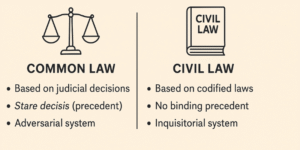Artificial Intelligence (AI) and Machine Learning (ML) are at the forefront of modern computer science, catalysing transformative advancements across various sectors including healthcare, finance, and autonomous systems. AI encompasses the development of systems that can perform tasks requiring human intelligence, such as visual perception, speech recognition, and decision-making. ML, a crucial subset of AI, focuses on the development of algorithms that enable computers to learn from data and make predictions. These technologies are not only reshaping industries but also redefining the boundaries of what machines can achieve.
Applications of AI and ML
Healthcare
AI’s scope extends to numerous applications, enhancing the efficiency and effectiveness of processes in different domains. In healthcare, for instance, AI-driven diagnostic tools have demonstrated remarkable accuracy in identifying diseases from medical images, thereby aiding early detection and treatment. Esteva et al. (2017) highlight the impact of deep learning, a branch of ML, in dermatology, where algorithms have achieved dermatologist-level classification of skin cancer from images. This application underscores the potential of AI to complement human expertise, leading to improved healthcare outcomes (Esteva et al., 2017).
Finance
The financial sector has also witnessed significant transformations due to AI and ML. These technologies are utilised for fraud detection, risk management, and personalised customer services. By analysing vast amounts of transaction data, ML algorithms can identify unusual patterns indicative of fraudulent activities. Furthermore, AI-powered chatbots and virtual assistants provide personalised financial advice and support, enhancing customer experience and operational efficiency (Brown & Hagen, 2018).
Autonomous Systems
Autonomous systems, such as self-driving cars, are another area where AI and ML have made substantial progress. These systems rely on complex algorithms and sensor data to navigate and make real-time decisions, aiming to enhance safety and efficiency in transportation. Goodfellow, Bengio, and Courville (2016) discuss the advancements in ML techniques that have enabled significant improvements in autonomous driving technologies, emphasising the role of neural networks and reinforcement learning in developing sophisticated control systems (Goodfellow, Bengio, & Courville, 2016).
Foundations and Ethical Considerations
Theoretical Frameworks
The development of AI and ML is grounded in robust theoretical frameworks and practical implementations. Russell and Norvig’s “Artificial Intelligence: A Modern Approach” provides a comprehensive overview of the principles and applications of these technologies. The book delves into various AI techniques, including search algorithms, knowledge representation, and learning methods, offering insights into the foundational aspects of AI and its real-world applications (Russell & Norvig, 2020).
Ethical Considerations
Ethical considerations are paramount in the deployment of AI and ML technologies. Issues such as data privacy, algorithmic bias, and the potential for job displacement necessitate careful deliberation and regulation. Mittelstadt et al. (2016) emphasise the importance of ethical frameworks to guide the development and implementation of AI, advocating for transparency, accountability, and fairness in AI systems (Mittelstadt et al., 2016). Addressing these ethical concerns is crucial to ensuring that AI technologies benefit society as a whole.
Future Directions
The future of AI and ML holds immense potential for further innovation and societal impact. Continuous advancements in computational power, data availability, and algorithmic techniques are expected to drive the evolution of AI capabilities. Researchers and practitioners are exploring new frontiers, such as explainable AI, which aims to make AI decision-making processes more transparent and understandable to humans (Gunning, 2017).
AI and ML are pivotal in driving technological progress across various domains. Their applications in healthcare, finance, and autonomous systems exemplify their transformative potential. As these technologies continue to evolve, it is essential to address ethical considerations and ensure that their development aligns with societal values. By harnessing the power of AI and ML responsibly, we can unlock unprecedented opportunities for innovation and improvement in numerous aspects of human life.
References
Brown, J., & Hagen, A. (2018) “Artificial Intelligence in Financial Services: Risk and Opportunity”. Journal of Financial Technology. 12(3), pp. 45-58.
Esteva, A., Kuprel, B., Novoa, R. A., Ko, J., Swetter, S. M., Blau, H. M., & Thrun, S. (2017) “Dermatologist-Level Classification of Skin Cancer With Deep Neural Networks”. Nature. 542(7639), pp. 115-118.
Goodfellow, I., Bengio, Y., & Courville, A. (2016) Deep Learning. MIT Press.
Gunning, D. (2017) “Explainable Artificial Intelligence (XAI)”. Defence Advanced Research Projects Agency (DARPA).
Mittelstadt, B. D., Allo, P., Taddeo, M., Wachter, S., & Floridi, L. (2016) “The Ethics of Algorithms: Mapping the Debate”. Big Data & Society. 3(2), pp. 79-105.
Russell, S., & Norvig, P. (2020) Artificial Intelligence: A Modern Approach. 4th ed. Pearson.









